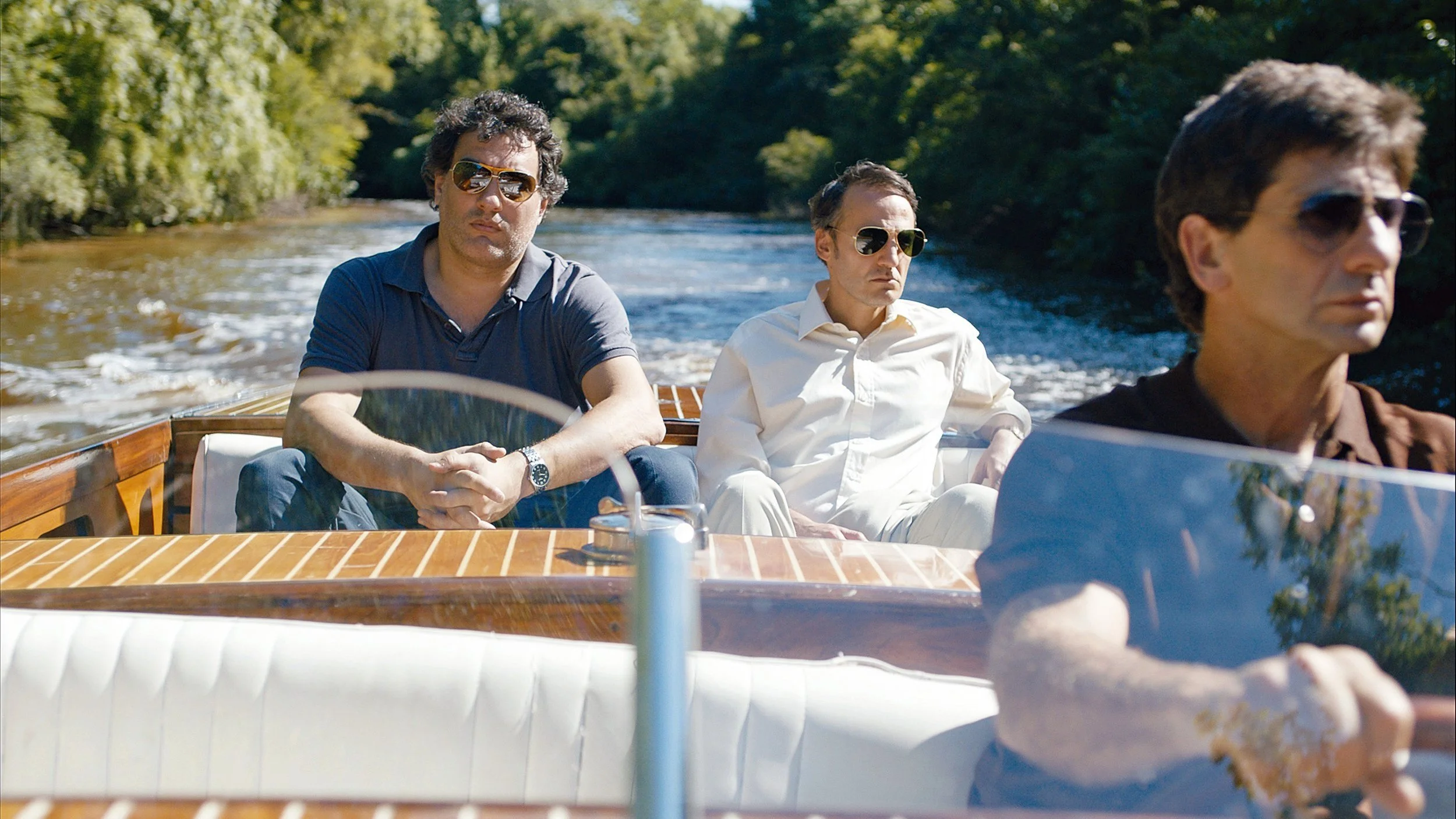Azor
Andreas Fontana’s debut feature is a remarkably mature and subtle drama set in 1980 during Argentina’s Dirty War.
Two factors help to explain why this debut feature by Andreas Fontana takes the form that it does. Since he is Swiss, it could on the face of it seem strange that as the director and leading writer he should choose to set his first feature in Argentina and to focus on life there in 1980 when the military junta was in power. That Fontana should have been drawn to this subject is, however, explained by the fact that his grandfather was a private banker and also somebody who travelled in that part of the world on holiday at just that time. Furthermore, Fontana himself knew the country having lived there for a while. What happens to Yvan de Wiel (Fabrizio Rongione), the central figure in Azor, may be invented but, like Fontana’s grandfather, he is a private banker from Switzerland. Indeed, the filmmaker was influenced by thoughts of what could have occurred had his grandfather’s visit to Argentina been on business.
Yvan arrives in Buenos Aires accompanied by his wife, Inés (Stéphanie Cléau), and does so at a time when his partner, René Keys, has gone missing. They are already established with many wealthy clients and Yvan’s aim is to provide them with assurance as he takes over that all is well and that he will handle everything confidentially. At the same time, he must sound out other potential clients. As he moves around making these contacts, Yvan quickly realises that he needs to tread carefully: without arousing hostility from members of the junta, he must say the right things to earn fully the trust of the rich who are anxious to preserve their investments and to protect their belongings by sending them abroad (one landowner describes Argentina as a country that is a private hunting ground for those at the top).
The other factor relevant to explaining the character of Azor lies in the fact that Fontana, having only previously directed one short film, is here turning to feature filmmaking at the comparatively advanced age of 39. Most debuts tend to be the work of younger directors intent on attracting attention, be it by showing off or by proving their ability to make a film with commercial appeal. In contrast, what Fontana gives us is a notably subtle film built on a screenplay which in itself adds to the sense that this is a truly mature work.
At the outset we see an incident that is viewed from the embassy car in which Yvan and Inés are being driven: it involves the police turning on two youths on the street and arresting them and by putting this upfront the power of the junta is underlined. This makes it unnecessary to follow up with overt action scenes and, rather than making use of consciously dramatic events, Fontana captures the unease and the dread beneath the surface which was then central to life in Argentina even among those who were well-off. The atmosphere conveyed encourages our own sense of curiosity and prompts us to ask questions. What sort of man was Yvan’s absent partner, a man described in such conflicting ways by those who knew him? If he was corrupt or became corrupted, is Yvan likely to end up following in his footsteps? That last possibility is all the stronger because Inés is ready to goad him on so as not to lose her posh lifestyle to which she is now both accustomed and addicted.
It can hardly be by chance that at certain moments Azor echoes both The Third Man and Apocalypse Now, yet it always maintains its own style, one that deliberately plays down any sense of melodrama. Both Rongione and Cléau give first-class performances perfectly coordinated in their underplaying while fully sustaining their grip on the audience. Perhaps the story lacks the potential to be any kind of a masterpiece but, even so, Azor is both masterful and individual. As for the title, that proves to be a code word the meaning of which, revealed late on in the film, proves apt for this atmospheric portrait of a society in which you have to be very careful of what you say.
MANSEL STIMPSON
Cast: Fabrizio Rongione, Stephanie Cléau, Carmen Iriondo, Juan Trench, Juan Pablo Geretto, Pablo Torre Nilson, Ignacio Vila, Elli Medeiros, Alexandre Trocki, Yvain Juillard, Gilles Privat.
Dir Andreas Fontana, Pro David Epiney and Eugenia Mumenthaler, Screenplay Andreas Fontana with Mariano Llinás, Ph Gabriel Sandru, Art Dir Ana Cambre, Ed Nicolas Desmaison, Music Paul Courlet, Costumes Simona Martínez Rivero.
Alina Film/Local Films/Radio Télévision Suisse/Ruda Cine-Mubi.
100 mins. Switzerland/France/Argentina. 2021. Rel: 29 October 2021. Cert. 12A.


